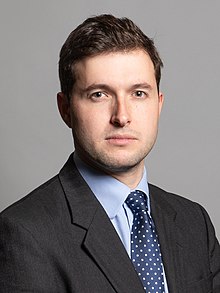Anthony Mangnall – 2022 Speech on the International Day for the Elimination of Violence Against Women
The speech made by Anthony Mangnall, the Conservative MP for Totnes, in Westminster Hall, the House of Commons on 1 December 2022.
I congratulate the hon. Member for Bristol South (Karin Smyth) and my hon. Friend the Member for Thurrock (Jackie Doyle-Price) on securing the debate. I also declare an interest as the chair of the all-party parliamentary group on the preventing sexual violence in conflict initiative, the co-chair of Conservative Friends of International Development, an ambassador for the HALO Trust, and a co-chair of the all-party parliamentary group for action on conflict and global Britain. To say that I am invested in this issue and in development matters would perhaps be a bit of an understatement.
I would like to give more of an international focus, given that the UK has just held the conference on preventing sexual violence in conflict. In 2012, I was a junior researcher in the then Foreign Secretary’s office, and I watched William Hague, Arminka Helić and Chloe Dalton formulate the concept behind the preventing sexual violence in conflict initiative. I will go on to say a little more about its creation. I saw those early days as a halcyon moment—a British drive to ensure that we were leading the world in international development and tackling the issues that were so often overlooked, because when the United Kingdom stands up and leads the way on development, so many other countries follow us.
In those early years, the UK demonstrated its ability to create and lead new international initiatives and encourage greater global action—whether on women’s rights, conflict prevention, healthcare or support for multilateral organisations based on the rules-based order, we led on it. Indeed, at every summit, conference and non-governmental organisation engagement, there were always British diplomats and politicians sitting around the table, writing the resolutions, helping to push the international community and securing international buy-in. Those activities continue—they are things that we need to champion in this place and within our Government Departments. However, the creation of the preventing sexual violence in conflict initiative in 2012 was one of the most extraordinary experiences of my life. To be privy to the creation of a movement that found domestic and international support and brought 150 countries together in unity was to behold true diplomacy, leadership and statecraft.
PSVI came about because, as is so often the case, it was an overlooked issue. In every conflict and crisis zone around the world, the use of rape and sexual violence was always well documented, but justice and support for survivors went largely ignored. Horrendous accounts have been written—there are countless reports and books—including Christina Lamb’s book, “Our Bodies, Their Battlefield”, which I encourage all colleagues to read if they have not done so. It reminds us that this is not a modern-day phenomenon, but a continuous factor in conflict through the ages. In nearly every instance of conflict, rape and sexual violence is exhibited. It is used by the perpetrators as a free tool of war—used to intimidate, divide, ostracise and subjugate. For its perpetrators, it is enacted with an expectation of impunity—that, in the confines of war, these atrocious acts can be committed freely and without fear of justice or consequences. For its victims, it is an act that will live with them for the rest of their lives. They never forget it; it is often never treated; and, worst of all, they never see justice brought to bear.
The prevalence of this important issue, and the lack of international action, meant that there was an opportunity to address that oversight and engage the international community. That is exactly what our team did, and in 2012 we set up the preventing sexual violence in conflict initiative. We held the first conference in 2014, and this week we held our second conference, albeit a few years delayed due to the pandemic. We have demonstrated our ability to lead on this issue, but—as is always the case in this world—we can go further.
We made significant promises in 2014, with lofty goals. As the special envoy, Angelina Jolie, has said, we knew they were lofty goals, and
“there has been some progress, including a few prosecutions at the national level, the adoption of the Murad Code and the establishment of the Global Survivors Fund. But it has not been nearly enough to meet the needs of survivors, or to deter perpetrators from using rape as a weapon of war in almost every new conflict in the past decade.”
We now need to think about what we can do next. I welcome the Government’s decision to introduce a new three-year strategy and £12.5 million of new funding, and the continuation of funding to the Global Survivors Fund. On that point, could the Minister clarify how much money is going to be put into the Ukraine gender-based violence fund? However, we know that political will and economic interests across the world are preventing the meaningful action that is needed. We need to think about what survivors need, and I will make two very quick points.
First, we must lead the charge and put more spending into preventing and responding to sexual and gender-based violence. To date, less than 1% of humanitarian relief is spent in that area. That funding gap is preventing the delivery of our ambitions, meaning that, while we might identify the problems, we are not solving them. Secondly, we must ensure a new international mechanism to lead on this specific issue, to specifically ensure that survivors are supported, crimes documented, and justice sought for those who have been raped. I will leave it there, Ms Elliott, because I am conscious of the time. Thank you.

